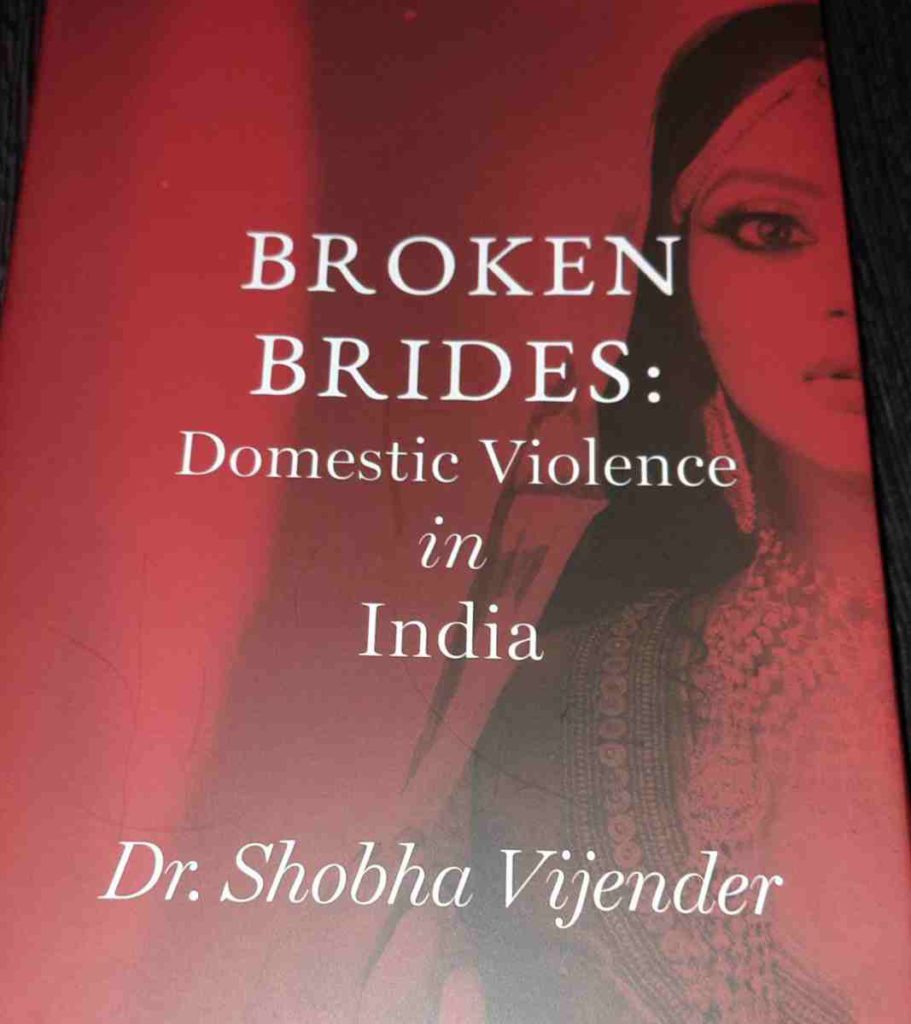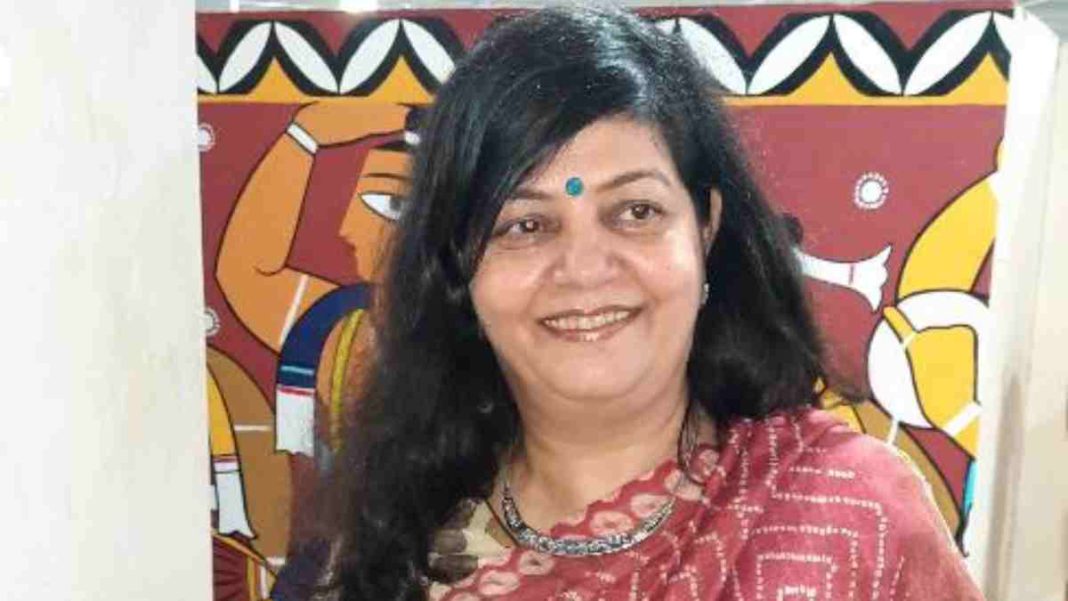INDIA: In Broken Brides: Domestic Violence in India, Dr. Shobha Vijender takes readers on a profound journey through the harrowing realities of domestic violence in India.
With over three decades of dedicated work in the field of women’s rights and social work, Shobha Vijender brings a wealth of experience and compassion to this critical issue that continues to afflict countless households across the nation.

The book lays bare a deeply ingrained problem that begins even before a girl child takes her first breath. In many households, the anticipation of a male child’s birth creates an atmosphere where gender discrimination starts at conception.
Sadly, this discrimination often escalates into outright violence against women within the confines of their homes. Dr. Vijender’s poignant narrative sheds light on this enduring issue, not only within India but also in various other nations.
“Broken Brides” is a work that demands attention, one that should find its place in the libraries of academic institutions and households alike. In its pages, the author presents 21 cases of domestic violence, each thoughtfully dissected with the aim of providing counseling as a crucial component of resolution.
Dr. Vijender firmly believes that counseling is an indispensable facet of addressing any relationship’s challenges, whether they be of a mental, psychological, emotional, or economic nature. Regrettably, the concept of counseling in India is not yet as widely recognized as medicine or law, and this book seeks to change that perception.
The heart of this book lies in its vivid portrayal of 21 distinct cases, each offering a unique perspective. These stories, shared with the full consent of the women involved, illuminate the inner turmoil and conflicts experienced by victims of domestic violence.
Dr. Vijender’s selection of cases spans a spectrum of socio-economic backgrounds, ensuring a comprehensive view of the issue.
The book is structured into seven chapters that delve into topics such as a comparative study of survivors of domestic violence, the process of addressing domestic violence, the significance of counseling, and supportive services.
The comprehensive research conducted by the author prior to penning this book ensures that it is not only informative but also captivating and enlightening. The inclusion of authentic case histories, where survivors narrate their own stories, adds a level of authenticity that is hard to ignore.
One intriguing aspect brought to light in “Broken Brides” is the portrayal of young urban couples who often opt for separation over attempting to resolve minor issues.
Economic independence, coupled with work-related stress, sometimes leads them to choose independence rather than facing the challenges of a marital home. This societal trend serves as a stark reminder of the evolving dynamics of relationships in contemporary India.
Importantly, this book does not purport to provide a panacea for domestic violence, but it does offer a valuable understanding of practical solutions for women facing adversity.
Dr. Shobha Vijender’s NGO, Sampurna, and its Family Counselling Centre (FCC), have been instrumental in assisting women in distress. Her comparison of data before and during the COVID-19 crisis underscores the role of gender bias and patriarchy in shaping family dynamics.
The book underscores the pivotal role that counseling plays in empowering women to recognize and address their abusive circumstances. Often, women trapped in abusive relationships fail to grasp the gravity of their situation, making counseling a vital tool in their path to healing and self-discovery.
“Broken Brides: Domestic Violence in India” is a remarkable testament to Dr. Shobha Vijender’s commitment to the welfare of women and her unwavering dedication to eradicating domestic violence. It is an essential read for anyone seeking a deeper understanding of this pervasive issue and the potential avenues for its resolution.
Also Read: Justin Roiland: Domestic Violence Allegations Surface against “Rick and Morty” Co-creator



